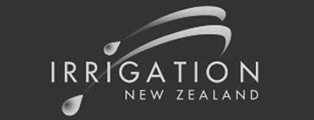Environmental Policy & Planning
Land and Water Regional Plan
The Canterbury Land and Water Regional Plan (LWRP) has implications for all Opuha Water shareholders. For an overview of LWRP and what it means for shareholders, download the March 2014 newsletter.
OWL’s Response to the LWRP
OWL is working on a number of initiatives in response to the LWRP.
Primary Industry Coordination:
Opuha Water is working with the Orari-Opihi-Pareora Zone Committee and other primary sector representatives to identify our the interests and goals we have in common to ensure coordination and consistency in the environmental and water use messages we are giving to farmers.
Information Provision:
OWL held a series of information sessions on the Land and Water Regional Plan for shareholders in early May 2014.
Follow the links below to view the presentations given by Environment Canterbury and Opuha Water at these meetings:
Further information can be found on the ECan website:
Understand the proposed Land & Water Regional Plan by reading the factsheets and faqs.
![]() Understanding the Land and Water Regional Plan
Understanding the Land and Water Regional Plan
The Canterbury Land & Water Regional Plan sets controls on the leaching of nitrates and will have an impact on your farm – the nutrient rules may affect land-use intensification plans.
![]() Information for Farmers – FAQ’s & Nutrient Rules
Information for Farmers – FAQ’s & Nutrient Rules
Farm Environment Plans (FEP): Many farmers will be required to get new resource consents and prepare an FEP over the next few years under the Land and Water Regional Plan. The Opuha Water Farm Plan roll-out will assist farmers to prepare for these changes Refer to the Audited Self-Management page for more information.
Irrigation scheme consent: The LWRP includes provisions that enable irrigation schemes to manage nutrient losses within their command area by holding a discharge permit. A scheme discharge consent would remove the need for shareholders to apply for a consent where one might otherwise be required. The irrigation scheme would be expected to manage and administer the N loss within the scheme.
The concept aligns with the Audited Self-Management (ASM) approach, however, there are various scenarios to work through in order to fully understand the pros and cons of Opuha Water holding a discharge consent. Opuha Water will keep shareholders informed as work progresses on this.



